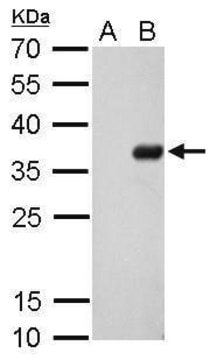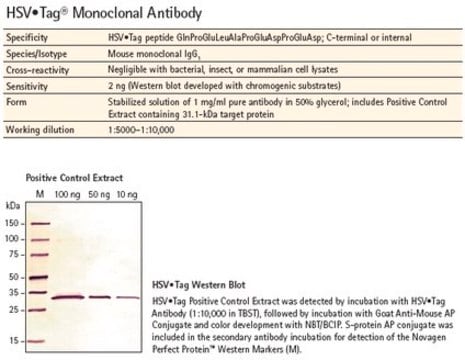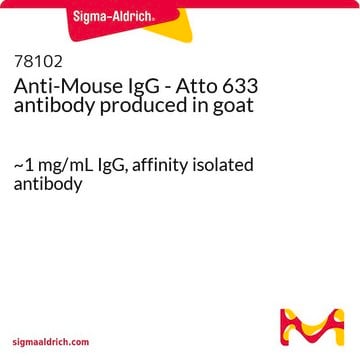SAB2702204
Monoclonal Anti-S Tag antibody produced in mouse
clone GT247, affinity isolated antibody
Sinônimo(s):
Anti-KETAAAKFERQHMDS tag, Anti-S peptide, Anti-S peptide epitope tag
About This Item
Produtos recomendados
fonte biológica
mouse
Nível de qualidade
conjugado
unconjugated
forma do anticorpo
affinity isolated antibody
tipo de produto de anticorpo
primary antibodies
clone
GT247, monoclonal
forma
buffered aqueous solution
reatividade de espécies
human
concentração
1mg/mL
técnica(s)
immunoprecipitation (IP): suitable
western blot: 1000-10000
Isotipo
IgG2b
Condições de expedição
wet ice
temperatura de armazenamento
−20°C
modificação pós-traducional do alvo
unmodified
Descrição geral
Imunogênio
Aplicação
Características e benefícios
Outras notas
forma física
Exoneração de responsabilidade
Not finding the right product?
Try our Ferramenta de seleção de produtos.
Código de classe de armazenamento
12 - Non Combustible Liquids
Classe de risco de água (WGK)
nwg
Ponto de fulgor (°F)
Not applicable
Ponto de fulgor (°C)
Not applicable
Certificados de análise (COA)
Busque Certificados de análise (COA) digitando o Número do Lote do produto. Os números de lote e remessa podem ser encontrados no rótulo de um produto após a palavra “Lot” ou “Batch”.
Já possui este produto?
Encontre a documentação dos produtos que você adquiriu recentemente na biblioteca de documentos.
Nossa equipe de cientistas tem experiência em todas as áreas de pesquisa, incluindo Life Sciences, ciência de materiais, síntese química, cromatografia, química analítica e muitas outras.
Entre em contato com a assistência técnica








